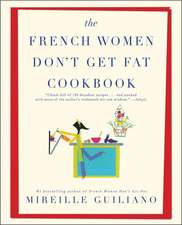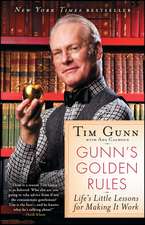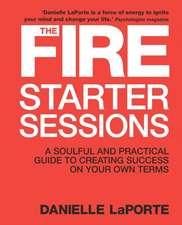Quiet: The Power of Introverts in a World That Can't Stop Talking: Crown Books
Autor Susan Cainen Limba Engleză Hardback – 31 dec 2011
Vezi toate premiile Carte premiată
Passionately argued, impressively researched, and filled with indelible stories of real people, Quiet shows how dramatically we undervalue introverts, and how much we lose in doing so. Taking the reader on a journey from Dale Carnegie’s birthplace to Harvard Business School, from a Tony Robbins seminar to an evangelical megachurch, Susan Cain charts the rise of the Extrovert Ideal in the twentieth century and explores its far-reaching effects. She talks to Asian-American students who feel alienated from the brash, backslapping atmosphere of American schools. She questions the dominant values of American business culture, where forced collaboration can stand in the way of innovation, and where the leadership potential of introverts is often overlooked. And she draws on cutting-edge research in psychology and neuroscience to reveal the surprising differences between extroverts and introverts.
Perhaps most inspiring, she introduces us to successful introverts--from a witty, high-octane public speaker who recharges in solitude after his talks, to a record-breaking salesman who quietly taps into the power of questions. Finally, she offers invaluable advice on everything from how to better negotiate differences in introvert-extrovert relationships to how to empower an introverted child to when it makes sense to be a "pretend extrovert."
This extraordinary book has the power to permanently change how we see introverts and, equally important, how introverts see themselves.
| Toate formatele și edițiile | Preț | Express |
|---|---|---|
| Paperback (2) | 58.85 lei 24-35 zile | +21.65 lei 4-10 zile |
| Penguin Books – 16 ian 2013 | 58.85 lei 24-35 zile | +21.65 lei 4-10 zile |
| BROADWAY BOOKS – 28 ian 2013 | 81.31 lei 3-5 săpt. | +13.11 lei 4-10 zile |
| Hardback (1) | 179.30 lei 3-5 săpt. | +28.06 lei 4-10 zile |
| Crown Publishing Group (NY) – 31 dec 2011 | 179.30 lei 3-5 săpt. | +28.06 lei 4-10 zile |
Din seria Crown Books
-
 Preț: 98.97 lei
Preț: 98.97 lei -
 Preț: 172.89 lei
Preț: 172.89 lei -
 Preț: 202.37 lei
Preț: 202.37 lei -
 Preț: 233.06 lei
Preț: 233.06 lei -
 Preț: 123.49 lei
Preț: 123.49 lei -
 Preț: 181.46 lei
Preț: 181.46 lei -
 Preț: 93.63 lei
Preț: 93.63 lei -
 Preț: 150.76 lei
Preț: 150.76 lei -
 Preț: 178.17 lei
Preț: 178.17 lei -
 Preț: 83.44 lei
Preț: 83.44 lei -
 Preț: 99.24 lei
Preț: 99.24 lei -
 Preț: 107.43 lei
Preț: 107.43 lei - 16%
 Preț: 79.39 lei
Preț: 79.39 lei -
 Preț: 78.12 lei
Preț: 78.12 lei -
 Preț: 210.96 lei
Preț: 210.96 lei -
 Preț: 194.69 lei
Preț: 194.69 lei -
 Preț: 100.24 lei
Preț: 100.24 lei -
 Preț: 117.29 lei
Preț: 117.29 lei -
 Preț: 156.56 lei
Preț: 156.56 lei -
 Preț: 164.34 lei
Preț: 164.34 lei -
 Preț: 68.75 lei
Preț: 68.75 lei
Preț: 179.30 lei
Nou
34.31€ • 37.26$ • 28.82£
Carte disponibilă
Livrare economică 01-15 aprilie
Livrare express 15-21 martie pentru 38.05 lei
Specificații
ISBN-10: 0307352145
Pagini: 333
Dimensiuni: 163 x 239 x 33 mm
Greutate: 0.6 kg
Editura: Crown Publishing Group (NY)
Colecția Crown Books
Seriile Crown Books, Quiet
Notă biografică
SUSAN CAIN is the author of the acclaimed New York Times bestseller QUIET: The Power of Introverts in A World That Can’t Stop Talking, which is being translated into over thirty languages and was named the #1 best book of the year by Fast Company magazine. Cain’s book was the subject of a TIME magazine cover story, and her writing has appeared in the The New York Times; The Atlantic; The Wall Street Journal; O, The Oprah Magazine; Salon.com; Time.com; PsychologyToday.com, and other publications. Cain has also spoken at Microsoft, Google, the U.S. Treasury, and West Point. Her record-smashing TED talk has been viewed over 3 million times, and was named by Bill Gates as one of his all-time favorite talks.
She has appeared on national broadcast television and radio including CBS “This Morning,” NPR’s “All Things Considered,” NPR’s “Diane Rehm,” and her work has been featured in The New Yorker, Harvard Business Review, The Atlantic, Wired, Fast Company, Real Simple, Fortune, Forbes, PEOPLE, Scientific American, USA Today, The Washington Post, CNN, Slate.com, and many other publications. She is an honors graduate of Princeton and Harvard Law School. She lives in the Hudson River Valley with her husband and two sons. You can visit her at www.thepowerofintroverts.com., and follow her on twitter (@susancain).
Extras
If these statistics surprise you, that’s probably because so many people pretend to be extroverts. Closet introverts pass undetected on playgrounds, in high school locker rooms, and in the corridors of corporate America. Some fool even themselves, until some life event—a layoff, an empty nest, an inheritance that frees them to spend time as they like— jolts them into taking stock of their true natures. You have only to raise the subject of this book with your friends and acquaintances to find that the most unlikely people consider themselves introverts.
It makes sense that so many introverts hide even from themselves. We live with a value system that I call the Extrovert Ideal—the omnipresent belief that the ideal self is gregarious, alpha, and comfortable in the spotlight. The archetypal extrovert prefers action to contemplation, risk- taking to heed-taking, certainty to doubt. He favors quick decisions, even at the risk of being wrong. She works well in teams and socializes in groups. We like to think that we value individuality, but all too often we admire one type of individual—the kind who’s comfortable “putting himself out there.” Sure, we allow technologically gifted loners who launch companies in garages to have any personality they please, but they are the exceptions, not the rule, and our tolerance extends mainly to those who get fabulously wealthy or hold the promise of doing so.
Introversion—along with its cousins sensitivity, seriousness, and shyness—is now a second- class personality trait, somewhere between a disappointment and a pathology. Introverts living under the Extrovert Ideal are like women in a man’s world, discounted because of a trait that goes to the core of who they are. Extroversion is an enormously appealing personality style, but we’ve turned it into an oppressive standard to which most of us feel we must conform.
The Extrovert Ideal has been documented in many studies, though this research has never been grouped under a single name. Talkative people, for example, are rated as smarter, better- looking, more interesting, and more desirable as friends. Velocity of speech counts as well as volume: we rank fast talkers as more competent and likable than slow ones. The same dynamics apply in groups, where research shows that the voluble are considered smarter than the reticent—even though there’s zero correlation between the gift of gab and good ideas. Even the word introvert is stigmatized—one informal study, by psychologist Laurie Helgoe, found that introverts described their own physical appearance in vivid language ( “green- blue eyes,” “exotic,” “high cheekbones”), but when asked to describe generic introverts they drew a bland and distasteful picture (“ungainly,” “neutral colors,” “skin problems”).
But we make a grave mistake to embrace the Extrovert Ideal so unthinkingly. Some of our greatest ideas, art, and inventions—from the theory of evolution to van Gogh’s sunflowers to the personal computer— came from quiet and cerebral people who knew how to tune in to their inner worlds and the treasures to be found there.
Copyright © 2012 by Susan Cain. From the book QUIET: The Power Of Introverts in a World That Can’t Stop Talking by Susan Cain, published by Crown, a division of Random House, Inc. Reprinted with permission.
Recenzii
O, The Oprah Magazine 10 Favorite Books of 2012
Christian Science Monitor Best Books of 2012
2012 Goodreads Choice Award, Best Nonfiction
Fast Company #1 Business Book of 2012
Inc Magazine Best Books for Entrepreneurs in 2012
Library Journal Best Books of 2012
Kirkus Reviews Best Books of 2012
"An important book that should embolden anyone who's ever been told, 'Speak up!'"
--People
"Cain offers a wealth of useful advice for teachers and parents of introverts…Quiet should interest anyone who cares about how people think, work, and get along, or wonders why the guy in the next cubicle acts that way. It should be required reading for introverts (or their parents) who could use a boost to their self-esteem."
--Fortune.com
"Rich, intelligent...enlightening."
--Wall Street Journal
"An intriguing and potentially life-altering examination of the human psyche that is sure to benefit both introverts and extroverts alike."
--Kirkus, Starred Review
"Cain gives excellent portraits of a number of introverts and shatters misconceptions. Cain consistently holds the reader’s interest by presenting individual profiles, looking at places dominated by extroverts (Harvard Business School) and introverts (a West Coast retreat center), and reporting on the latest studies. Her diligence, research, and passion for this important topic has richly paid off."
--Publishers Weekly
"This book is a pleasure to read and will make introverts and extroverts alike think twice about the best ways to be themselves and interact with differing personality types."
--Library Journal
"An intelligent and often surprising look at what makes us who we are."
--Booklist
"In this well-written, unusually thoughtful book, Cain encourages solitude seekers to see themselves anew: not as wallflowers but as powerful forces to be reckoned with."
--Whole Living
"Those who value a quiet, reflective life will feel a burden lifting from their shoulders as they read Susan Cain's eloquent and well documented paean to introversion--and will no longer feel guilty or inferior for having made the better choice!"
--MIHALY CSIKSZENTMIHALYI, author of Flow and Distinguished Professor of Psychology and Management, Claremont Graduate University
"Superbly researched, deeply insightful, and a fascinating read, Quiet is an indispensable resource for anyone who wants to understand the gifts of the introverted half of the population."
--GRETCHEN RUBIN, author of The Happiness Project
"Quiet is a book of liberation from old ideas about the value of introverts. Cain’s intelligence, respect for research, and vibrant prose put Quiet in an elite class with the best books from Malcolm Gladwell, Daniel Pink, and other masters of psychological non-fiction."
--TERESA AMABILE, Professor, Harvard Business School, and coauthor, The Progress Principle
"As an introvert often called upon to behave like an extrovert, I found the information in this book revealing and helpful. Drawing on neuroscientific research and many case reports, Susan Cain explains the advantages and potentials of introversion and of being quiet in a noisy world."
--ANDREW WEIL, author of Healthy Aging and Spontaneous Happiness
"Susan Cain has done a superb job of sifting through decades of complex research on introversion, extroversion, and sensitivity--this book will be a boon for the many highly sensitive people who are also introverts."
--ELAINE ARON, author of The Highly Sensitive Person
"Quiet legitimizes and even celebrates the ‘niche’ that represents half the people in the world."
--GUY KAWASAKI, author of Enchantment: The Art of Changing Hearts, Minds, and Actions
"Susan Cain is the definer of a new and valuable paradigm. In this moving and original argument, she makes the case that we are losing immense reserves of talent and vision because of our culture's overvaluation of extroversion. A startling, important, and readable page-turner that will make quiet people see themselves in a whole new light."
--NAOMI WOLF, author of The Beauty Myth
"Superb…A compelling reflection on how the Extrovert Ideal shapes our lives and why this is deeply unsettling. Based on meticulous research, it will open up a new and different conversation on how the personal is political and how we need to empower the legions of people who are disposed to be quiet, reflective, and sensitive."
--BRIAN R. LITTLE, PH.D., Distinguished Scholar, Department of Social and Developmental Psychology, Cambridge University
"Quiet elevates the conversation about introverts in our outwardly-oriented society to new heights. I think that many introverts will discover that, even though they didn't know it, they have been waiting for this book all their lives."
--ADAM S. MCHUGH, author of Introverts in the Church
"Gentle is powerful... Solitude is socially productive... These important counter-intuitive ideas are among the many reasons to take Quiet to a quiet corner and absorb its brilliant, thought-provoking message."
--ROSABETH MOSS KANTER, Harvard Business School professor, author of Confidence and SuperCorp
"Memo to all you glad-handing, back-slapping, brainstorming masters of the universe out there: Stop networking and talking for a minute and read this book. In Quiet, Susan Cain does an eloquent and powerful job of extolling the virtues of the listeners and the thinkers--the reflective introverts of the world who appreciate that hard problems demand careful thought and who understand that it's a good idea to know what you want to say before you open your mouth."
--BARRY SCHWARTZ, author of Practical Wisdom and The Paradox of Choice
“A smart, lively book about the value of silence and solitude that makes you want to shout from the rooftops. Quiet is an engaging and insightful look into the hearts and minds of those who change the world instead of tweeting about it.”
--DANIEL GILBERT, professor of psychology, Harvard University, author of Stumbling on Happiness
Descriere
At least one-third of the people we know are introverts. They are the ones who prefer listening to speaking, reading to partying; who innovate and create but dislike self-promotion; who favor working on their own over brainstorming in teams. Although they are often labeled "quiet," it is to introverts that we owe many of the great contributions to society--from van Gogh’s sunflowers to the invention of the personal computer.
Passionately argued, impressively researched, and filled with indelible stories of real people, Quiet shows how dramatically we undervalue introverts, and how much we lose in doing so. Taking the reader on a journey from Dale Carnegie’s birthplace to Harvard Business School, from a Tony Robbins seminar to an evangelical megachurch, Susan Cain charts the rise of the Extrovert Ideal in the twentieth century and explores its far-reaching effects. She talks to Asian-American students who feel alienated from the brash, backslapping atmosphere of American schools. She questions the dominant values of American business culture, where forced collaboration can stand in the way of innovation, and where the leadership potential of introverts is often overlooked. And she draws on cutting-edge research in psychology and neuroscience to reveal the surprising differences between extroverts and introverts.
Perhaps most inspiring, she introduces us to successful introverts--from a witty, high-octane public speaker who recharges in solitude after his talks, to a record-breaking salesman who quietly taps into the power of questions. Finally, she offers invaluable advice on everything from how to better negotiate differences in introvert-extrovert relationships to how to empower an introverted child to when it makes sense to be a "pretend extrovert."
This extraordinary book has the power to permanently change how we see introverts and, equally important, how introverts see themselves.
Cuprins
INTRODUCTION: The North and South of Temperament |
PART ONE: THE EXTROVERT IDEAL
1. THE RISE OF THE “MIGHTY LIKEABLE FELLOW”: How
Extroversion Became the Cultural Ideal |
2. THE MYTH OF CHARISMATIC LEADERSHIP: The
Culture of Personality, a Hundred Years Later |
3. WHEN COLLABORATION KILLS CREATIVITY:
The Rise of the New Groupthink and the Power of
Working Alone |
PART TWO: YOUR BIOLOGY, YOUR SELF?
4. IS TEMPERAMENT DESTINY?: Nature, Nurture, and the
Orchid Hypothesis |
5. BEYOND TEMPERAMENT: The Role of Free Will (and the
Secret of Public Speaking for Introverts) |
6. “FRANKLIN WAS A POLITICIAN,
BUT ELEANOR SPOKE OUT OF CONSCIENCE”:
Why Cool Is Overrated |
7. WHY DID WALL STREET CRASH AND WARREN
BUFFETT PROSPER?: How Introverts and Extroverts Think
(and Process Dopamine) Differently |
PART THREE: DO ALL CULTURES HAVE
AN EXTROVERT IDEAL?
8. SOFT POWER: Asian-Americans and the Extrovert
Ideal |
PART FOUR: HOW TO LOVE, HOW TO WORK
9. WHEN SHOULD YOU ACT MORE EXTROVERTED
THAN YOU REALLY ARE? |
10. THE COMMUNICATION GAP: How to Talk to
Members of the Opposite Type |
11. ON COBBLERS AND GENERALS: How to Cultivate
Quiet Kids in a World That Can’t Hear Them |
CONCLUSION: Wonderland |
A Note on the Dedication |
A Note on the Words Introvert and Extrovert |
Acknowledgments |
Notes |
Index |
Premii
- Books for a Better Life Finalist, 2012
- ALA Notable Books Winner, 2013
- L.A. Times Book Prize Finalist, 2012
- Indies Choice Book Awards Honor Book, 2013

















